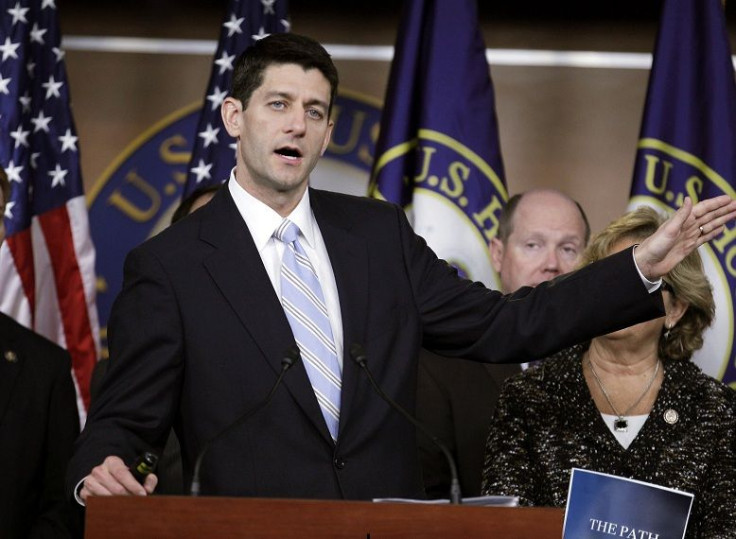What's Inside Paul Ryan's Budget Plan? Repeal Obamacare, Savings From Obama's Fiscal Policies

As President Barack Obama woos Republicans amid a budget battle, House Budget Committee Chairman Paul Ryan will unveil a budget plan on Tuesday for the upcoming fiscal year.
The proposal from the Wisconsin Republican aims to balance the federal budget in 10 years and not in 25 like in his last plan. It cuts about $5 trillion in spending over that time period and, compared to Ryan's previous budget proposal, includes savings from policies the Obama administration implemented. But one thing it retains is the push to repeal the Affordable Care Act, commonly known as Obamacare, something that has no chance of happening with the Senate controlled by Democrats.
Ryan’s budget plan assumes the sequester's $1.2 trillion in savings over the next decade is in place. It also includes $600 billion in revenue achieved through the recent "fiscal cliff" tax increases and the $716 billion in Medicare cuts under Obamacare. These were policies opposed by the GOP, and especially by Ryan when he sought the vice presidency last year.
Yet Obama’s policies have resulted in a favorable outlook from the nonpartisan Congressional Budget Office. In its Budget and Economic Outlook: Fiscal Years 2013 to 2023 report, the CBO stated that economic growth will be slow this year, but will speed up after.
“If the current laws that govern federal taxes and spending do not change, the budget deficit will shrink this year to $845 billion, or 5.3 percent of gross domestic product, its smallest size since 2008,” the CBO report read. “In CBO’s baseline projections, deficits continue to shrink over the next few years, falling to 2.4 percent of GDP by 2015.”
Ryan admitted to host Chris Wallace, “We don't have to do huge things to get the balance because of the new baseline. The point is, we think we owe the American people a balanced budget. We want to respect hard-working taxpayers.”
Also included in Ryan’s new budget plan is a return of cuts he included in the last. Those cuts include social service programs like food stamps, Medicaid and Medicare.
“What we propose is to consolidate these programs into flexible grants that go back to the states, to actually get people into jobs and into training so that they can get back to work,” Ryan said. “So, we get rid of the bureaucracy in Washington. We send the money back to the states, so that people can actually get the skills they need to get the jobs they want.”
Regarding food stamps, Ryan would make it so that “you actually have to qualify for the food stamp programs to get the food stamp benefits.”
“And, with respect to Medicaid, we think the Obamacare expansion of Medicare is reckless,” he added. “We are pushing people, 20 million people, into a program that’s failing. More and more doctors and hospitals don’t even take the program. And we want to reform Medicaid by giving states the ability to customize the Medicaid program, to meet the unique needs of their Medicaid population.”
Wallace reminded Ryan that repealing Obamacare is “not going to happen.”
In the meantime, Senate Democrats are currently working a budget they expect to pass. It will be their first in four years.
© Copyright IBTimes 2024. All rights reserved.












